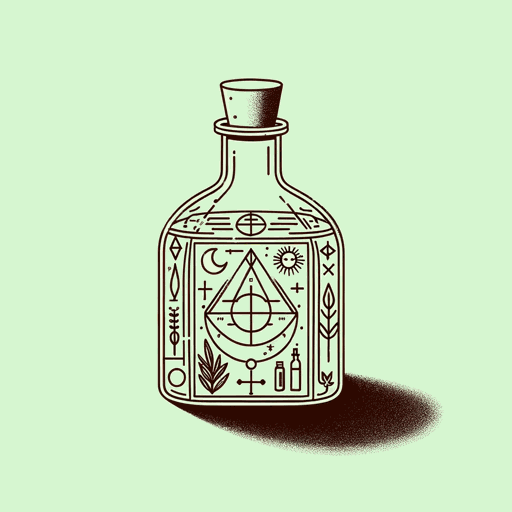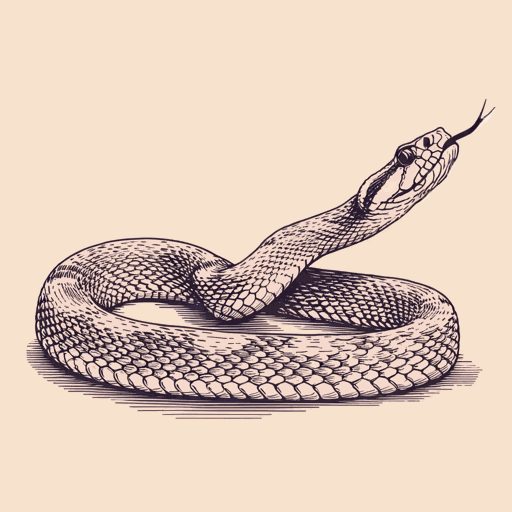46 pages • 1 hour read
Zora Neale HurstonMoses, Man of the Mountain
Fiction | Novel | Adult | Published in 1939A modern alternative to SparkNotes and CliffsNotes, SuperSummary offers high-quality Study Guides with detailed chapter summaries and analysis of major themes, characters, and more.
Summary and Study Guide
Overview
Moses, Man of the Mountain is an allegorical novel by African-American author and anthropologist Zora Neale Hurston. The novel reimagines the life of Moses and the biblical narrative of the Exodus from Egypt with several important changes, including the use of African American dialect, slang, and folklore. Throughout the novel, Hurston draws allegorical parallels between the enslavement of the Hebrew people in Egypt and the enslavement of people of African descent in the United States. Important themes in the novel include the Freedom as a Constant Struggle, The Presence of God’s Power in Nature, and The Political Value of Storytelling.
This summary is based on the 2010 Harper Collins e-book edition.
Content Warning: Both the source text and this guide discuss racism and enslavement.
Plot Summary
In the Author’s Introduction, Hurston argues that descendants of enslaved people across the African diaspora worship Moses as a powerful figure. As the novel begins, Pharaoh Rameses’s decree has made the people of Israel slaves in Egypt. Women give birth in secret to avoid their sons being drowned. Enslaved workers Amram and Caleb discuss Amram’s fears about his wife Jochebed’s pregnancy. Moments after learning their neighbor’s wife and newborn son were killed by Egyptian police, Jochebed gives birth to a boy. After Rameses announces harsher restrictions for Hebrews and claims to have midwifes as spies, Jochebed and Amram decide to place their infant son in a boat on the Nile. Their daughter Miriam is left to watch the boat; when she falls asleep, she claims the Pharaoh’s daughter found and took the baby. Although the Pharaoh denies the story, the people of Goshen believe there is a Hebrew prince in the palace.
In the palace, the Pharaoh’s son Ta-Phar grows up resenting his sister’s son Moses, a curious boy who is second in line to the throne. Under the mentorship of Mentu, a palace stableman, Moses grows into a confident man and leader. When he begins to advocate for the rights of Hebrews, rumors about his own origins spread. Confused about his identity and upset at his complicity in the oppression of Hebrews, Moses decides to leave court. When he kills an Egyptian foreman for abusing Hebrew slaves, Moses leaves Egypt for good.
Three days after leaving, Moses reaches the Red Sea. Following advice from an old man, he crosses a narrow patch of land at low tide. Moses travels through the desert until he is stunned by the sight of Mt. Sinai (also known as Mt. Horeb). He meets and grows close with a man named Jethro, who lives at the foot of the mountain with his family. Moses helps Jethro to defeat a gang of bandits who have stolen his cattle. He falls in love with Jethro’s daughter, Zipporah, and Jethro agrees to their marriage. To keep Moses from falling into complacency, Jethro tells him that there is a God named Jehovah at the top of Mt. Sinai, and that he believes Jehovah is waiting there for Moses. Moses travels back to Egypt and discovers the Book of Thoth, which grants him omniscience and control of the elements.
Jethro asks Moses to help him introduce the Hebrews to Jehovah, but Moses refuses. While climbing the mountain, Moses encounters a burning bush speaking with the voice of God. The voice calls Moses to return to Egypt and free the Hebrews from Pharaoh’s oppression. Moses agrees, thrilling Jethro, who arranges for a Hebrew named Aaron to be Moses’s guide. Jethro and Aaron convince a reluctant Moses that pretending Aaron is his brother and leaning into the legend of his Hebrew roots will convince the Hebrews to follow him.
Although initially suspicious, the Elders of the Hebrew tribes quickly accept Moses as the rod of their salvation. Moses meets with Ta-Phar, now Pharaoh, and demands he free the Hebrews. Ta-Phar refuses, though Aaron believes he will soon give in. Moses knows he must defeat Egypt in battle for the Hebrews to be truly free. Moses demonstrates God’s power by brings plagues of blood, frogs, and lice to Egypt, sparing only the Hebrews.
Moses spends a month away from the palace, training a young Hebrew boy named Joshua to be a military leader. Under pressure from the Egyptian nobility, Ta-Phar refuses to release the Hebrews from enslavement. Moses sends plagues of flies, cattle disease, boils, hail, locusts, and three days of darkness. Finally, in the middle of the night, the first-born sons of every family of Egypt are killed. Having sacrificed lambs and painting the blood on their homes, the sons of Hebrew families remain safe.
Ta-Phar finally agrees to release the Hebrews from enslavement. Under Moses’s leadership, the Hebrews begin the long journey out of Egypt. Two days later, Ta-Phar regrets his decision and leads an army to bring the Hebrews back into slavery. Moses uses his staff to part the Red Sea and lead the Hebrews across. When Pharaoh’s armies follow, the path closes, drowning everyone.
The Hebrews begin to march towards Mt. Sinai. When they encounter bitter water, Moses makes it drinkable by dipping in cut branches. When they complain of hunger, Moses brings a miracle of quail and manna from heaven. With the help of Moses’s staff, the Hebrews win their first battle in the desert. The caravan finally reaches Mt. Sinai, and Moses is reunited with his wife Zipporah, who becomes the envy of all the Hebrew women. Jethro encourages Moses to delegate leadership tasks and focus on God.
God calls Moses onto the mountain. Joshua follows, and watches as Moses receives laws and speak directly to God for 40 days and nights. In his absence, the Hebrews grow desperate and build a golden calf to worship under Aaron’s direction. Furious, Moses throws the tablets at the calf, destroying both, and orders the execution of all involved. God provides new tablets. Miriam stokes resentment against Zipporah among the women. When she confronts Moses, she is stricken with leprosy.
As the years pass, the Hebrews grow restless in the Sinai desert. Moses decides to send out scouts to observe the promised land, Canaan. When ten scouts return with reports of giants in Canaan, the Hebrews refuse to leave. God sentences them to 40 years of wandering in order to bring about a braver generation. After 40 years, Miriam asks Moses to let her die; when she does, he establishes her as a heroine of the Exodus. He kills Aaron and buries him with the honors of the first High Priest of Israel. The Hebrews come to land of Canaan. Satisfied that he has fulfilled God’s will, Moses leaves the Hebrews and begins the journey back to Sinai to spend the rest of his life communing with God and nature.
Related Titles
By Zora Neale Hurston

Barracoon: The Story of the Last "Black Cargo"
Zora Neale Hurston

Drenched in Light
Zora Neale Hurston

Dust Tracks on a Road
Zora Neale Hurston

Hitting a Straight Lick with a Crooked Stick
Zora Neale Hurston

How It Feels To Be Colored Me
Zora Neale Hurston

Jonah's Gourd Vine
Zora Neale Hurston

Mule Bone: A Comedy of Negro Life
Langston Hughes, Zora Neale Hurston

Mules and Men
Zora Neale Hurston

Seraph on the Suwanee
Zora Neale Hurston

Spunk
Zora Neale Hurston

Sweat
Zora Neale Hurston

Tell My Horse: Voodoo and Life in Haiti and Jamaica
Zora Neale Hurston

The Eatonville Anthology
Zora Neale Hurston

The Gilded Six-Bits
Zora Neale Hurston

Their Eyes Were Watching God
Zora Neale Hurston

